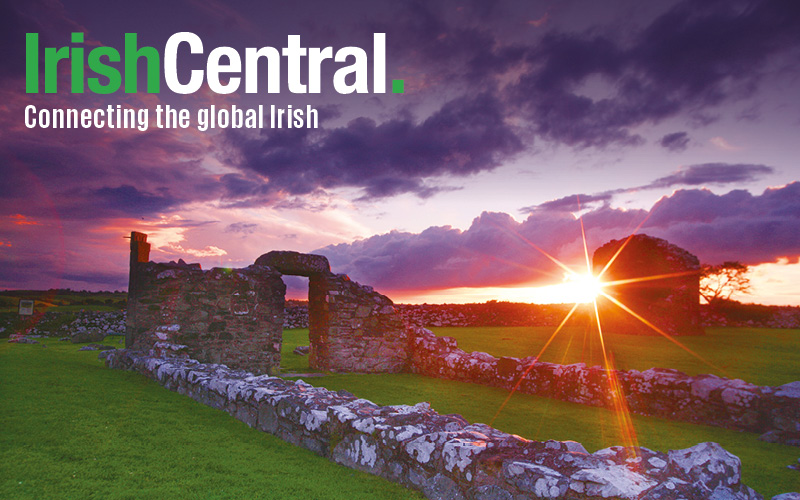Politicians of all parties this week marked the 90th anniversary of the first meeting of Dail Eireann (Irish Parliament) held in the Mansion House in Dublin, when Ireland was still under British rule. Members of both the current Dail and the upper house, the Seanad, held a joint anniversary meeting in the Mansion House on Tuesday, the eve of the first assembly, and Sinn Fein celebrated the event with its own gathering on Wednesday, the actual anniversary. The four living former taoisigh (prime ministers), Liam Cosgrave, Garret Fitzgerald, Albert Reynolds and Bertie Ahern, were in the public gallery along with descendants of members of the first Dail, including Michael Collins' grand-nieces Nora Owen, a former Justice Minister, and her sister Mary Banotti, former Member of the European Parliament. On the government benches was Eamon O Cuiv, grandson of Eamonn de Valera, an absentee member of the first Dail because he was a prisoner in Lincoln Jail at the time. Representatives of the Northern Ireland Assembly, including Deputy First Minister Martin McGuinness of Sinn Fein, were in the special visitors' gallery on Tuesday as well as members of the European Parliament. Only 28 Sinn Fein members were actually present at the first Dail assembly. Another 45 were either in prison or on the run. The first Dail sat on January 21, 1919, when Sinn Fein elected representatives fulfilled a promise to establish an independent Irish parliament. Their election was one of the key steps on the road to Irish independence. The first shots in the War of Independence were fired on the same day when two policemen were killed in Co. Tipperary during an ambush as they escorted a consignment of gelignite. Taoiseach (Prime Minister) Brian Cowen told the anniversary assembly that the next few years are going to be "very difficult" for everyone in the face of with major political, economic and social challenges. "Those who founded Dail Eireann and who carved an independent Ireland out of the most powerful empire in the world faced daunting challenges. They succeeded. So too will we," Cowen said. Cowen spoke about the landmark Good Friday Agreement, the importance of Ireland's role in Europe and the current economic challenges. "When, in 1998, the people of Ireland voted by a majority, and by majorities north and south, in favor of the Good Friday Agreement, it was the first occasion since the general election of 1918 - the election at which the people selected the representatives who sat in the first Dail -- that the people of this island had voted on the same day on the issue of their constitutional status," Cowen said. "It now falls to our generation of Irish Republicans -- a heritage to which all political parties represented in the 30th Dail can legitimately lay claim -- to rededicate ourselves to the challenge which animated the members of the first Dail - to build a sovereign, democratic, Irish republic embracing all the people of our nation." Cowen continued, "But if our challenge is the same, it is different in nature from that which faced the men and women of 1919. The First Dail had one, single, overriding ambition- to secure 'the evacuation of our country by the English garrison.' "Today, Ireland is no longer in conflict with Britain. A sovereign, independent republic exists in the 26 counties and Britain has entered into a binding international treaty obligation with the republic to withdraw from the six counties of Northern Ireland, if and when a majority of the people in Northern Ireland should ask it to do so. The Irish people, north and south, have for their part accepted that Northern Ireland remains in union with Britain unless and until the majority in the north desire otherwise." Cowen called for a redoubling of efforts to build a prosperous, peaceful and fair society in the Republic. He added, "Without abandoning our own ideals and traditions, we must seek to better understand and accommodate the strong identification with Britain felt by many hundreds of thousands of Irish people." On Ireland's wider role in today's world, Cowen emphasized the importance of membership of the European Union, and accused those who opposed its development of being "unmoved by fact, experience or progress." He said, "Where we see a landscape populated with opportunity and cooperation, they see one of threat and interference." Opposition leader Enda Kenny noted that the 90th anniversary of the first Dail coincided with a time "as unhappy and dangerous" as any the country had known in the past. "If one thing is clear at this time it is that we need a Dail as envisaged by the men and women of 1919 - a Dail which is at the centre of our politics, not one at the periphery of events, a Dail to which the government and all its agencies are openly accountable, and most of all a Dail which leads events rather than reacting to them." In a clear sideswipe at the banking crisis and the government's handling of the spiraling economy, Kenny said the first Dail gave Irish people "accountability as to how the people's money was spent and answerability for all the actions of government." Labor party leader Eamon Gilmore said the country should be inspired by the words and courage of members of the first Dail as "we face our moment of national crisis." Two protestors were arrested when they staged a rooftop protest at the Mansion House. The pair, members of a small socialist Republican activist group, Eirigi, evaded tight security outside the landmark building to launch the demonstration as the anniversary celebrations began.




Comments